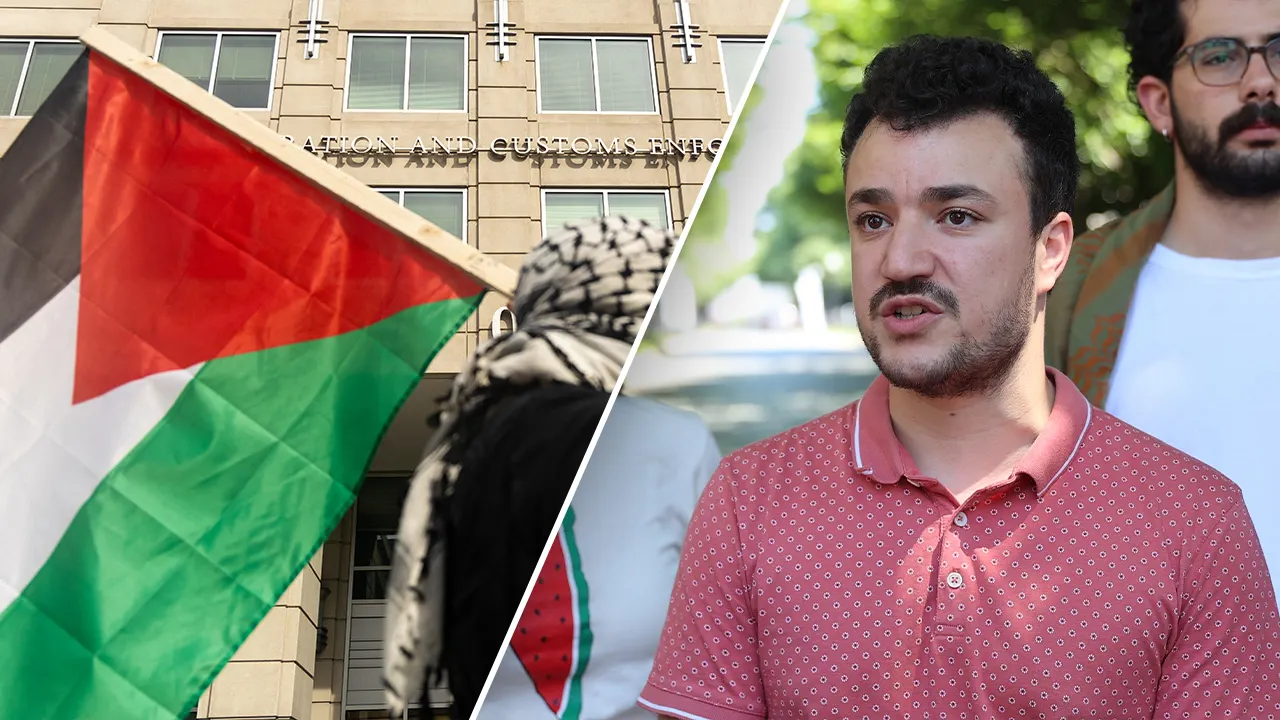Judge Rules Against Protesters in Khalil Deportation Case: Key Takeaways & Analysis
Editor’s Note: A judge has ruled against protesters challenging the deportation of Khalil (last name withheld for privacy reasons), sparking widespread debate and raising important questions about immigration law and protest rights. This article examines the key aspects of the case and its implications.
Why This Topic Matters
The Khalil deportation case highlights crucial intersections between immigration policy, due process, and the right to protest. The ruling's implications extend beyond the individual case, affecting how future protests against deportations are handled and potentially impacting public discourse on immigration reform. Understanding the judge's decision and the arguments presented by both sides is vital for anyone concerned about immigration rights, civil liberties, and the role of protest in a democratic society. This article will delve into the key takeaways, analyze the judge's reasoning, and explore the potential consequences of this significant ruling. Keywords: Khalil deportation, immigration protest, deportation ruling, civil liberties, immigration law, protest rights, due process.
Key Takeaways
| Takeaway | Description |
|---|---|
| Judge rules against protesters | The court rejected the protesters' claims, upholding the deportation order. |
| Legal arguments analyzed | The article will examine the legal basis for both the deportation order and the protest challenge. |
| Implications for future protests | The ruling could set a precedent for how future protests against deportations are handled. |
| Discussion on immigration policy | The case highlights broader questions about immigration policy and its impact on individuals and communities. |
| Focus on due process concerns | The article will analyze the due process arguments presented by both sides. |
Khalil Deportation: A Detailed Analysis
This case centers around the deportation order issued against Khalil, a [Nationality] national who [briefly state reason for deportation, e.g., overstayed his visa, committed a minor offense]. Protesters argued that [state protesters' main argument, e.g., the deportation was unjust, violated due process, lacked sufficient evidence]. The judge, however, ruled that [state judge's reasoning, citing legal precedence if possible]. This decision raises concerns about [mention specific concerns, e.g., the fairness of the immigration system, the limitations on protest rights].
The Role of Protest in the Immigration Debate
The protests surrounding Khalil's deportation highlight the passionate debate surrounding immigration policy. Protesters argue that [reiterate protesters' stance on immigration and the deportation]. Conversely, proponents of the deportation argue that [reiterate opposing arguments]. The ruling itself sets a precedent that will impact future similar protests.
Due Process and Deportation: A Balancing Act
A central point of contention in the case was whether Khalil received due process. The protesters argued [state due process arguments]. The court, however, determined that [state court's counter-argument on due process]. This highlights the complex balancing act between upholding the rule of law and ensuring fair treatment for all.
People Also Ask (NLP-Friendly Answers)
Q1: What is the Khalil deportation case about?
A: The case involves the deportation of Khalil, a [Nationality] national, and the subsequent legal challenge from protesters who argued the deportation was unjust.
Q2: Why is this case important?
A: It sheds light on the complexities of immigration law, the limits of protest rights in such contexts, and the broader debates surrounding deportation practices and due process.
Q3: How could this ruling impact future protests?
A: The ruling could potentially set a precedent, influencing how courts address future protests against deportations.
Q4: What are the main arguments against Khalil's deportation?
A: Protesters argued that the deportation was unjust, violated due process rights, and lacked sufficient evidence.
Q5: What are the next steps in this case?
A: [State potential next steps, e.g., It’s possible the protesters could appeal the ruling. The ruling itself is final unless appealed.]
Practical Tips for Engaging in Civil Discourse on Immigration
- Educate yourself: Understand the legal and ethical aspects of immigration.
- Engage respectfully: Listen to opposing viewpoints and engage in civil discussion.
- Support organizations: Contribute to organizations working on immigration rights.
- Contact your representatives: Voice your concerns to elected officials.
- Participate peacefully: Engage in lawful and non-violent protests.
- Seek reliable information: Consult credible sources for information on immigration issues.
Summary: The judge's ruling in the Khalil deportation case has far-reaching implications. It not only affects Khalil directly but also sets a potential precedent for future protests and underscores the complexities of immigration law.
Closing Message: The Khalil case prompts reflection on how we balance upholding the law with protecting individual rights and fostering meaningful dialogue about crucial societal issues. What role does protest play in shaping policy?
Call to Action: Share this article to raise awareness about this important issue. Sign up for our newsletter to stay updated on immigration news.
(Hreflang tags would be added here based on language versions of the article)

